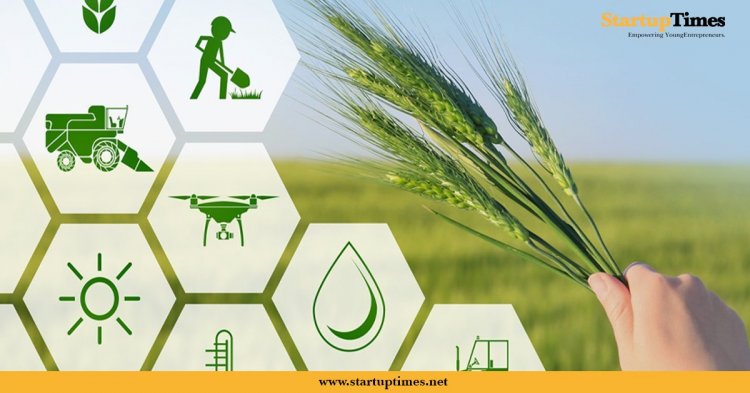Never worry about what to do about agriculture startup again with these 8 most important government policies
Never worry about what to do about agriculture start up again with these 8 most important government policies

India is primarily an agricultural country and so agriculture occupies a very important place in the Indian economy. It is the main source of livelihood of over 70% of the population in the country. It contributes nearly half of the national income.
It is well known that agricultural productivity in India is the lowest in the world. The average yield per hectare of agricultural land in India is about one-fourth of that in the advanced countries. India’s yield of 890kilograms of wheat per hectare is the lowest in the world compared with 4,350 kilograms in Britain, 3,480 in West Germany 2,610 in U.A.E. 2,540 in Japan, and 1,590 in Buma.
There are many reasons for low productivity. However, if you’re looking for a new agritech startup then here are few government policies. The Indian Govt. has placed a robust impetus on this sector and aims to double the income of farmers by 2022:
- Pradhan Mantri Fasal Bima Yojana (PMFBY):
- Launched in 2016, the scheme provides financial support to farmers and covers their crop losses. The scheme covers Rabi, Kharif crops also as annual horticultural and commercial crops.
- PMFBY is a crop insurance policy and premium payable on the principal amount to the farmers.
- Pradhan Mantri Krishi Sinchayee Yojana (PMKSY):
- Under the scheme, an allocation of USD7.64 billion has been made for investment in irrigation, expanding cultivable areas, improve the efficiency of on-farm water to reduce wastage, enhance the adoption of precision irrigation, etc.
- Paramparagat Krishi Vikas Yojana (PKVY):
- The scheme ensures the promotion of organic farming and the balanced use of chemical fertilizers and enhances the quality of farm produce.
- Agricultural Technology Management Agency (ATMA):
- This technique facilitates retrieval of data and data entry from the internet-based web portals without having the internet by using a simple mobile phone.
- More than a dozen services of innovative technology like USSD are being operationalized for farmers and other stakeholders.
- Initiative for Development of Entrepreneurs in Agriculture (IDEA):
- It intends to promote agri-business ventures, assist in agri-business as a profitable venture, also provide gainful employment opportunities, and make available supplementary sources of input supply and services.
- E-NAM
- National Agriculture Market (eNAM) is a pan-India electronic trading portal which networks the prevailing APMC mandis to make a unified national marketplace for agricultural commodities.
- Small Farmers Agribusiness Consortium (SFAC) is the lead agency for implementing eNAM under the aegis of the Ministry of Agriculture and Farmers' Welfare, Government of India.
- National Mission for Sustainable Agriculture (NMSA)
- The scheme has been formulated for enhancing agricultural productivity especially in rain-fed areas that specialize in integrated farming, water use efficiency, soil health management, and synergizing resource conservation.
- NMSA will cater to key dimensions of 'Water use efficiency', 'Nutrient Management', and 'Livelihood diversification' through the adoption of sustainable development pathway by progressively shifting to environmentally friendly technologies, adoption of energy-efficient types of equipment, conservation of natural resources, integrated farming, etc.
- Livestock insurance Scheme
- This scheme aims to provide a protection mechanism to the farmers and cattle rearers against any eventual loss of their animals due to death and to demonstrate the benefit of the insurance of livestock to the people and popularize it with the last word goal of achieving a qualitative improvement in livestock and their products.













